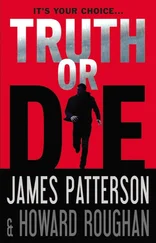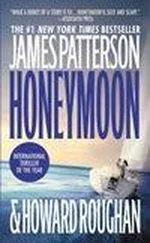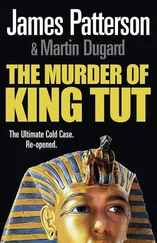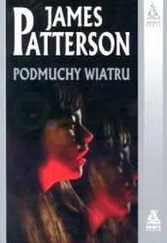Matty was still talking. “Or maybe Sal hired a hit man.”
“Our doorman Sal? Are you crazy, Matthew? Why would Sal do that? Malcolm liked Sal. He gave him free chill pills. I’m sure the cops will give him a good turn on the spit, but you have more of a motive to kill our parents than Sal has. Why are you so quick to shut us up?”
Matthew pushed his sunglasses to the top of his bird’s nest of hair. He gave me the double-barreled blue-eyed all-American stare. Now the gloves were coming off.
Yes , I thought. Everyone should defend themselves in the safety of the living room now, because sooner or later, we will have to do it for real.
“Don’t look at me , Tandoori,” Matthew said. “Even if I am fast enough to circle the block before the smell catches up with my fart, I still wasn’t here last night, and I still haven’t even visited this insane asylum since Christmas.”
Harry was running his fingers over the piano keys in a dramatic thrumming riff, either Chopin or Liszt—I wasn’t sure which.
Then he stopped playing and said to Matthew, “Who even knows if that’s true, Matty? You could have used the service elevator, and you could still have a key. No one would have known you were here. And, Hugo —your room is right at the foot of the stairs. You had easy access to the penthouse.”
Hugo put down the weights and jackknifed to his feet.
“I’m just a kid ! I couldn’t kill my own parents. What am I supposed to do without them? Get a job? I’m four-foot-eight. I’m in the fifth grade.”
Then he spun on his heels and pointed his huge index finger at me.
“Tandy’s got motive, too. She’s the one who got the last Big Chop.”
 12
12 
Are you ready for the story of the last supper? My last dinner with Malcolm and Maud, the evening they died? I’m about to tell you the whole truth and nothing but. Far more than I told the cops. I’m really starting to trust you, reader.
The fact is, that night I got in trouble big-time, and I was punished. And it just so happens that punishment was Malcolm and Maud’s specialty.
As I mentioned earlier, my father had prepared a private dinner for the UN’s ambassador from the Kingdom of Bhutan. His name is Ugyen Panyor, and he believes himself to be directly descended from Ugyen Guru Rinpoche, who brought Buddhism to Bhutan thirteen centuries ago.
Father had prepared ema datshi , the national dish of Bhutan. He substituted feta cheese for the yak cheese in the recipe because yak cheese is very hard to come by, even in Manhattan. But the rest of the meal was authentic, including the excess of chilies combined with tomato and garlic, and the side dish of traditional red rice.
The ambassador was polite but not effusive in his praise, and I took offense. My father was a serious foodie. He cooked; he savored; he even named me Tandoori, after West Indian cooking that is prepared in a clay stove called a tandoor. We had a restaurant-grade tandoor oven in our own kitchen, which I’d leaned against as I watched my father prepare that night’s meal.
So when the ambassador didn’t make mention of the obvious perfection of my father’s meal, I decided to bring up a topic that had been expressly forbidden by my parents before the ambassador arrived: the refugees living in UN-supervised camps in Nepal.
Insurgents had sprung up in these camps, and some believed that they were the intelligence behind the bombings that had pounded the country before the parliamentary elections.
The ambassador refused to answer my questions about the lack of progress to repatriate the refugees; he just said, with a cheeky smile, “And when did you get your degree in the foreign service, Miss Angel?”
It was nervy of him to take me on.
I said, “You don’t behave like an ambassador, sir. You behave like a politician.”
The look on my father’s face said everything.
 13
13 
After the ambassador had been escorted to the elevator, with apologies, my parents marched me right into their study—a library with a high vaulted ceiling and bookshelves lining every wall. Two glass-topped desks stood in the middle of the room, facing each other. Samantha’s amazing framed photos of the family decorated the mantel above the fireplace, the only other available surface.
My mother’s desk held not one, not two, but six computer monitors, which she used to track every burp and giggle of domestic, European, and Asian markets so she could trade in nanoseconds.
My father’s übercomputer had one enormous screen. It operated at warp speed and had massive storage capacity so that he could mine the scientific world on every front, synthesize the data, and adapt it to his needs. But neither of them was sitting at their computer that night. Instead, they stood in front of them, arms crossed, staring me down as if they could crush me with their gaze.
When my father finally began yelling at me for disgracing him in front of an important guest, Harry started banging out Wagner’s Die Meistersinger von Nürnberg on the Pegasus to drown him out.
Punishment in our house was called the “Big Chop,” and it was always fitted to the crime and doled out immediately.
“You must name every landmark in Bhutan in Dzongkha, the national language.” My father furrowed his brow. “I don’t care if it takes you the rest of the night. If you make a mistake, you’ll have to start again, Tandy.”
I said, “I want sixty seconds with the computer. That’s only fair.”
“Sixty seconds with the computer comes with a penalty.”
“I’ll take it,” I said.
I hadn’t read any Dzongkha since my freshman year, so I needed a refresher, and I wanted to see a map of Bhutan’s cities, too. I flipped on the computer and scanned the Google Earth view of Bhutan and the nearby countries of India and Nepal.
Then the computer was switched off.
Malcolm said, “You turned our dinner party upside down, Tandy. This chop is appropriate, fair, and equitable, and furthermore, for your penalty, you must execute this task while standing on your head.”
If you’re from a normal family, you probably think that part was a joke. But it wasn’t a joke, and I knew it.
I had never won an argument with my father, and I never would. I put a cushion under my head and walked my feet up the bookcase. I began my recitation with the high spots—Thimphu, the capital; Mongar, a town in the east—and finished the cities before naming the monasteries.
My mother was online, tracking trades in Asia, and I whispered to her, “Mother, please. I’ve done enough.”
“Buck up, Tandy,” she said, “or we’ll double the chop.”
I was released after an hour.
I told my father that the meal had been delicious, and that I had enjoyed it when it came back up almost as much as I had enjoyed it going down.
He chuckled and kissed me good night.
Maud patted my cheek and told me I had to work on my pronunciation a little, but all in all, I’d done a good job.
I went to bed and thought about what I’d done, not because I was sorry for offending the ambassador, but because I’d let myself get out of control. I didn’t like that. The few times I’d been out of control in my life things had gone terribly, terribly wrong.
I don’t usually let myself think about those times.
Читать дальше
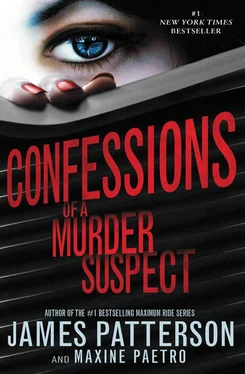
 12
12 


